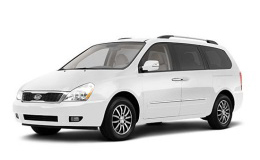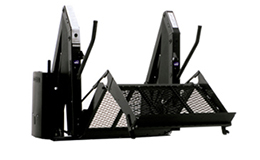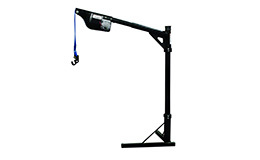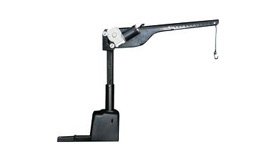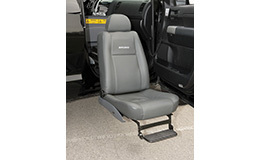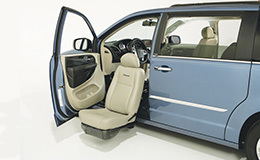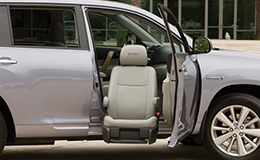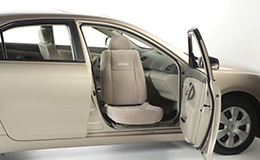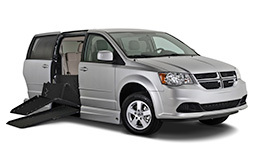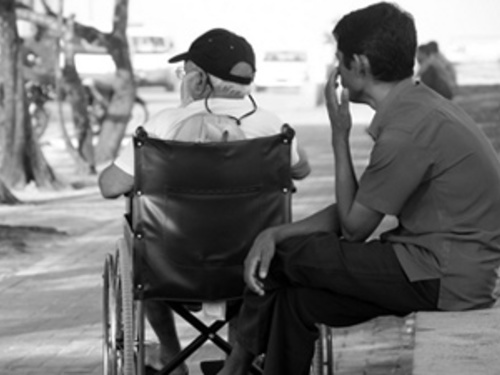
Having a physical disability often makes me stand out in a crowd. People notice when my foot goes up to pay for a purchase or when I am struggling to carry something and naturally people want to help. But I love being able to do many things on my own because it makes me feel like a regular person. Like the first time I drove by myself or the day I moved out on my own. When I really want to get something done I will find a way, but having a disability often requires extra time and creative thinking. While in elementary, I would spend the entire recess figuring out how I would scale a stair-less platform just to go down the playground’s slide once. When I became a mother, I had to figure out how to hold, burp and carry my baby.
As creative as I am, there are some things I can’t do or are much slower at and thankfully there are people willing to lend a helping hand. I am grateful for the offers of help, which I may or may not accept, but when offering help or being helped it is important to remember the following:
Don’t insist on helping
In junior high a substitute teacher once insisted on opening some food containers for me. I said I didn’t need help but she ignored me, which left me feeling embarrassed. The offer was kind, but if someone with a disability declines help, don’t get offended or insist on helping anyway. Although it appears like help is needed, someone may just have a different way of doing things. Sometimes when I put my purse on the ground to grab a credit card, others try to put my purse on the counter. But picking my purse up is the opposite of help - I need it on the ground. Please do offer help because sometimes it is needed, but first wait for a response before doing anything.
Don’t cry wolf
If you can do something on your own and you ask for help or accept it, this could just be laziness. I am completely guilty of this. We all know help can accomplish things faster, but the last thing I want to do is take advantage of others, especially those I love the most. Although my family doesn’t mind helping, I personally have to be careful not to ask for things I could easily do myself.
That is not to say I haven’t been tempted to “cry wolf” when my abilities are continually underestimated. I wonder, for example, when I use my credit card and the cashier nervously asks if I can sign my name, what she would do if I said “no.” The cashier always looks relieved when I consent, but I can’t help but wonder what I could get away with.
That said sometimes it is easy to use my disability as an excuse. During junior high, my class had to pick up garbage around the school and a substitute teacher kindly excused me. I could have gotten out of the work, but insisted I could help. But out of convenience, I sometimes accept these kinds of offers. When I picked up a parcel recently, I was excused from showing ID because the clerk knew me. In reality she was saving me the hassle of getting out my ID. A gesture I actually appreciated and have asked for when entering big box stores like Costco. Could I show my ID or membership? Sure, but for me it is more inconvenient than for an able-bodied person. On the most part I try not to use my disability as an excuse as I don’t want people thinking I am less capable than I am. Being honest about my abilities is empowering and it helps others see disability in a better light.
It is okay to decline help?
It is always okay to decline help. When I was learning to nurse my son, my mom and mother-in-law took turns helping my son latch on. The arrangement didn’t last long as I soon became determined to find a way to do it on my own. I refused my mother-in-law’s help while she watched Tarek scream his head off as I tried to get him to latch on by himself. I know that was hard for her to see us struggle, but I am glad she respected my wishes. We were successful and I nursed him almost a year. Disabled or not, struggling at something builds character and helps each of us accomplish things we didn’t think were possible.
Decline graciously
Sometimes what looks hard to others is easy for me and I try not to get offended when someone offers help. I have met other people with disabilities that are extremely rude and have responded coldly when help has been offered. As much as I want to do some things on my own, I try to remember the spirit in which help is being offered. No one is thinking, “I am going to help this person so she feels more disabled or because she can’t do it on her own.” People just want to help and make things easier for you. This is a beautiful part of human nature and our world needs more of it whether the recipient is disabled or not. Sometimes I find myself apologizing for declining help too abruptly. The last thing I want to do is discourage someone from being charitable. If you really want to do something on your own, then just politely say so.
Should you accept help even when it is not needed?
The truth is I sometimes accept other’s help, not because I need it, but because someone else needs to give it. Doing so does not diminish my abilities, but helps others be more compassionate and appreciative. Recently someone saw me pushing my cart through the snow to unload bags into my van. She stopped and finished the job for me. Yes, I could have done it myself, but I was appreciative she did it.
I have met some amazing people because I have allowed them the opportunity to serve. These experiences have made me realize I am not alone in this world. Accepting help doesn’t make me feel less able, but rather leaves me with a great sense of gratitude. Instead of trying to do it all on your own, let people in and show an attitude of gratitude.

